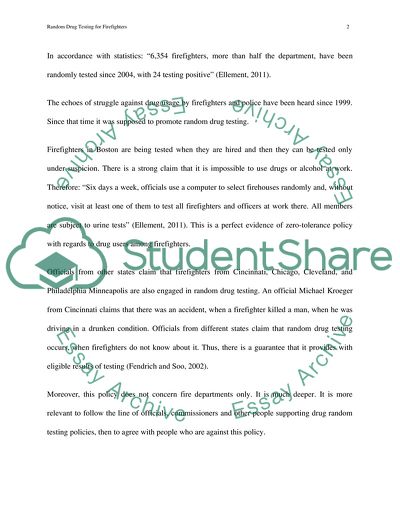Cite this document
(Random Drug Testing for Firefighters Research Paper, n.d.)
Random Drug Testing for Firefighters Research Paper. Retrieved from https://studentshare.org/health-sciences-medicine/1755518-random-drug-testing-for-firefighters-police-for-and-against-arguments-constitutional-arguments
Random Drug Testing for Firefighters Research Paper. Retrieved from https://studentshare.org/health-sciences-medicine/1755518-random-drug-testing-for-firefighters-police-for-and-against-arguments-constitutional-arguments
(Random Drug Testing for Firefighters Research Paper)
Random Drug Testing for Firefighters Research Paper. https://studentshare.org/health-sciences-medicine/1755518-random-drug-testing-for-firefighters-police-for-and-against-arguments-constitutional-arguments.
Random Drug Testing for Firefighters Research Paper. https://studentshare.org/health-sciences-medicine/1755518-random-drug-testing-for-firefighters-police-for-and-against-arguments-constitutional-arguments.
“Random Drug Testing for Firefighters Research Paper”, n.d. https://studentshare.org/health-sciences-medicine/1755518-random-drug-testing-for-firefighters-police-for-and-against-arguments-constitutional-arguments.


